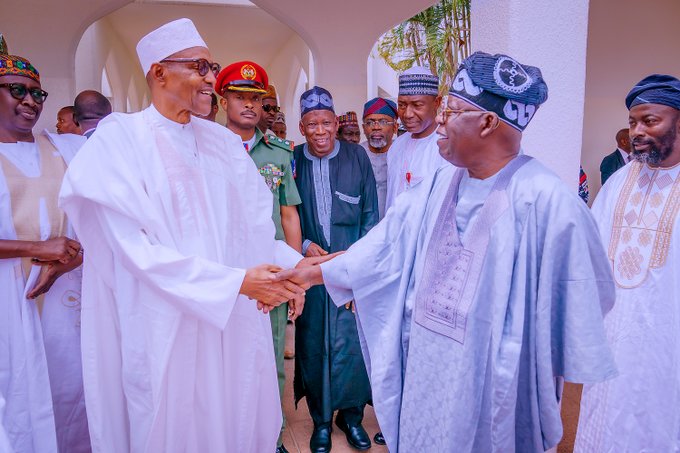Senior Advocate of Nigeria (SAN) and renowned rights activist, Mike Ozekhome, has sparked heated conversations by claiming that former President Muhammadu Buhari is responsible for the ethnic imbalance in President Bola Ahmed Tinubu’s government.
Speaking at a symposium organized by the International Human Rights Commission (IHRC) in Abuja on Wednesday, Ozekhome accused Buhari’s administration of fostering ethnic and religious divisions, paving the way for Tinubu to favor individuals from the Yoruba ethnic group in key government positions.
“When I hear northerners complain that Tinubu has ‘Yorubanised’ Nigeria, they have a point,” he said. “But where were they during Buhari’s eight years when every position was ‘northernised’? You were either a northerner or a Muslim.”
“I Cried, I Wrote, I Warned”
Ozekhome did not hold back his emotions as he reflected on his efforts during Buhari’s tenure.
“I cried, I cried, I wrote and wrote,” he recounted. “One of the 50 books I presented on my 67th birthday was titled ‘How Buhari Mismanaged Nigeria.’ Some people defended him simply because he was their man. Even if it wasn’t benefitting them, they supported him. Now that the table has turned, they cry foul.”
The fiery advocate warned that no country can progress with such tribal and sectional politics. “We must rise above ethnicity and religion to save this country. No nation grows when leaders sacrifice unity on the altar of tribalism.”
Call for a New Constitution
Ozekhome also criticized the 1999 Constitution, calling it fundamentally flawed. He emphasized the need for a new constitution that includes input from all Nigerians, regardless of their ethnic or religious backgrounds.
“We need to redefine ourselves,” he said. “Not the present system where thieves are rewarded with doctorate degrees.”
He warned that the continued neglect of Nigeria’s unity in diversity could lead to further disintegration and instability.
Diversity: A Challenge and Opportunity
The event, themed “Unity in Diversity: Embracing Freedom, Equality, and Dignity for All,” also featured key remarks from IHRC officials.
H.E. Ambassador Dr. Duru Hezekiah, IHRC’s Ambassador-at-Large and Head of Diplomatic Mission in Nigeria, highlighted Nigeria’s multicultural makeup as both a challenge and an opportunity.
“Recurring ethnic and religious conflicts threaten our national unity and stability,” he said. “However, Nigeria’s diversity offers opportunities for cultural exchange and understanding that can promote unity and cooperation.”
The symposium served as a platform to address the complexities of human rights in a nation with over 250 ethnic groups and more than 500 spoken languages.
New IHRC Appointments
The one-day event also marked the official swearing-in of new IHRC officials in Nigeria.
H.E. Ambassador Dr. Malami Shehu Ma’Aji MFR was appointed IHRC Special Advisor on Intergovernmental Affairs for the Africa Region. Chief John Paul Ochemba was named IHRC Advisor on Special Monitoring Mission Nigeria, while Dr. Kingsley Nwokoma took up the role of IHRC Commissioner in Nigeria.
These appointments, approved by IHRC Secretary-General Prof. h.c. Rafał Marcin Wasik, signal a renewed commitment to fostering unity and human rights across the country.
Unity Is Key
As the symposium concluded, Ozekhome’s words remained a sobering reminder of Nigeria’s struggles with tribalism and its impact on governance.
“Our leaders must prioritize unity and shun tribalism. We must build a nation where everyone feels included, regardless of ethnicity or religion,” he said.

